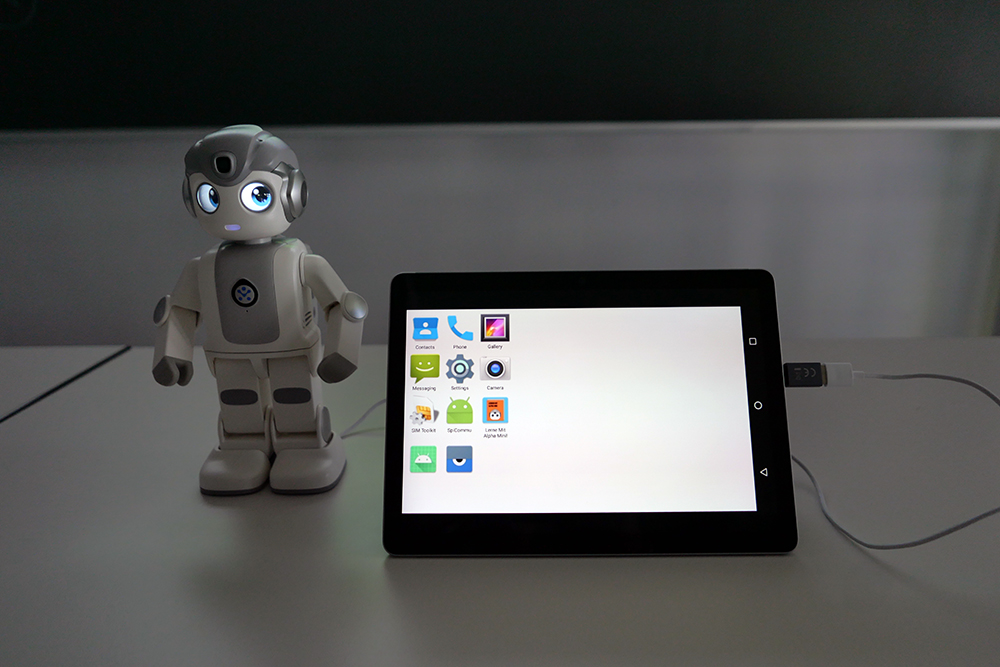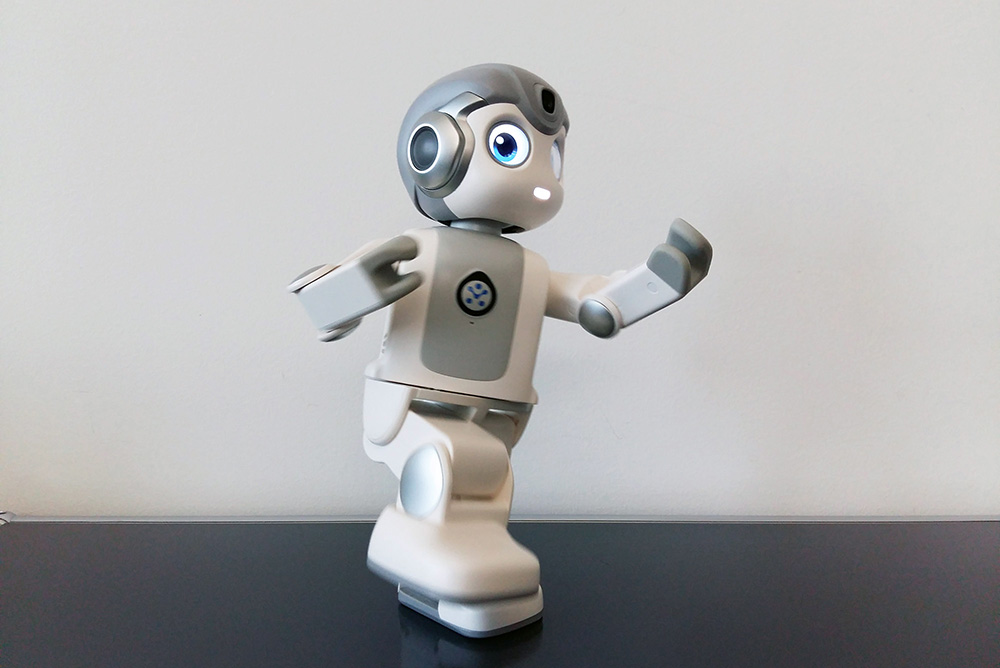The elective module “Soziale Roboter” (“Social Robots”) by Prof. Dr. Oliver Bendel will be held again from April 15 to 17, 2025 at the FHNW in Olten. It is primarily aimed at prospective information systems specialists, but prospective business economists can also take part. Dr. Amol Deshmukh has been invited as a guest speaker. He previously worked for the University of Glasgow and now conducts research at ETH Zurich. In his lecture, he will present the findings from his paper “Leveraging Social Robots to Promote Hand Hygiene: A Cross-Cultural and Socio-Economic Study of Children in Diverse School Settings”. Unitree Go2, Alpha Mini, Cozmo, Vector, Aibi, Furby and Booboo from Oliver Bendel’s private Social Robots Lab will also be on site. Social Robotics Girl, a so-called GPT who specializes in this topic, will be available as a tutor throughout the event. Basic works are “Soziale Roboter” (2021) and “300 Keywords Soziale Robotik” (2021). At the end of the elective module, students design social robots – also with the help of generative AI – that they find useful, meaningful, or simply attractive. The elective modules have been offered since 2021 and are very popular.
First Volume of ICSR Proceedings
The proceedings of ICSR 2023 were published at the beginning of December 2023. The first volume contains the article “Alpha Mini as a Learning Partner in the Classroom” by Oliver Bendel and Andrin Allemann. From the abstract: “Social robots such as NAO and Pepper are being used in some schools and universities. NAO is very agile and therefore entertaining. Pepper has the advantage that it has an integrated display where learning software of all kinds can be executed. One disadvantage of both is their high price. Schools can hardly afford such robots. This problem was the starting point for the project described here, which took place in 2023 at the School of Business FHNW. The aim was to create a learning application with an inexpensive social robot that has the same motor capabilities as NAO and the same knowledge transfer capabilities as Pepper. The small Alpha Mini from Ubtech was chosen. It was possible to connect it to an external device. This runs a learning game suitable for teaching at primary level. Alpha Mini provides explanations and feedback in each case. Three teachers tested the learning application, raised objections, and made suggestions for improvement. Social robots like Alpha Mini are an interesting solution for knowledge transfer in schools when they can communicate with other devices.” The volume can be downloaded or ordered via link.springer.com/book/10.1007/978-981-99-8715-3.
Alpha Mini as a Learning Partner
The paper “Alpha Mini as a Learning Partner in the Classroom” by Prof. Dr. Oliver Bendel and Andrin Allemann was accepted at ICSR 2023. The philosopher of technology and information systems specialist has been researching conversational agents for a quarter of a century, and for many years specifically on embodied conversational agents and social robots. Andrin Allemann developed a learning application for children as part of his final thesis at the FHNW School of Business, supervised by Oliver Bendel. The goal was to create one with a low-cost social robot that has the same motor skills as NAO and the same knowledge transfer capabilities as Pepper (which is equipped with a display). The choice fell on the small Alpha Mini from Ubtech. It was possible, with some technical effort, to pair it with an external device, a Microsoft Surface. This runs an educational game suitable for primary school teaching. ICSR 2023 will take place in Qatar in December 2023. Along with Robophilosophy, it is one of the most important conferences for social robotics worldwide.
Little, Great Teacher
July 14, 2023 was the final presentation of the “Little Teacher” project, in which Alpha Mini plays a leading role. The initiator was Prof. Dr. Oliver Bendel, who has been researching conversational agents and social robots for a quarter of a century. Andrin Allemann contributed to the project as part of his thesis and carried out the implementation. In this application, Alpha Mini is intended for school or learning in a child’s room. It was connected to a tablet or laptop (a Microsoft Surface). It can teach simple learning material on geography and biology with the help of pictures and text on the display, and motivate children through verbal, gestural, and mimic feedback. It is therefore a small teacher with great possibilities. Alpha Mini is a social robot characterized by small size (and thus good transportability) and extensive natural language and motor skills. It is much less expensive than other humanoid robots with comparable capabilities. However, unlike Pepper, it does not have an integrated tablet. The project showed that it is possible to connect different components of a learning environment and to support learning success and learning enjoyment. The project was launched on March 8, 2023. Project completion is August 11, 2023. Until then, minor bugs will be fixed and several tests will be performed. The results will be published in a paper.
Little Teacher
Alpha Mini is a social robot characterized by small size (and thus good transportability) and extensive natural language and motor skills. It can be used in school lessons, both as a teacher and tutor and as a tool with which to program. On March 8, 2023, a new project started at the School of Business FHNW, in which Alpha Mini plays a leading role. The initiator is Prof. Dr. Oliver Bendel, who has been researching conversational agents and social robots for a quarter of a century. Andrin Allemann is contributing to the project as part of his final thesis. Alpha Mini will be integrated into a learning environment and will be able to interact and communicate with other components such as a display. It is to convey simple learning material with the help of pictures and texts and motivate the children through gestural and mimic feedback. So this is a little teacher with great possibilities. In principle, it should comply with the new Swiss federal law on data protection (neues Datenschutzgesetz, nDSG). The project will last until August 2023, after which the results will be published.




